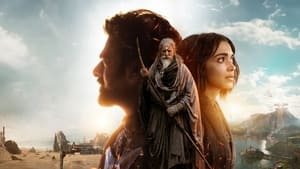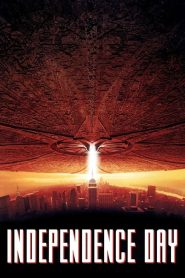
Video Sources 30 Views Report Error

Kalki 2898-AD
When the world is taken over by darkness, a new force will arise.Jun. 26, 2024India176 Min.Not Rated
Synopsis
In the year 2898 AD, six millennia after the epic Kurukshetra war, the world has transformed into a dystopian realm, fraught with decay and despair. Amid this bleak landscape, Ashwatthama, a legendary figure cursed to roam the earth for his sins from the ancient conflict, is determined to achieve redemption. His quest for absolution has led him to the final battle, a climactic confrontation that he believes will signal a new era of hope for the ravaged world.
Ashwatthama’s journey is fraught with challenges, as the world around him is a harsh reflection of centuries of conflict and neglect. The once-vibrant civilizations are now ruins, and humanity struggles under the weight of its own demise. Ashwatthama, burdened by his curse and driven by a deep sense of duty, believes that his final battle will not only redeem his own soul but also offer a glimmer of salvation to the world.
However, his path to redemption is obstructed by Bhairava, a bounty hunter whose motivations and methods are driven by self-interest and survival. Bhairava, known for his sharp wit and opportunistic nature, has grown weary of the dangerous and unpredictable life of a bounty hunter. He sees Ashwatthama’s quest as a significant threat to his own well-being and survival.
Bhairava, equipped with a keen intellect and a knack for navigating treacherous situations, becomes a formidable obstacle in Ashwatthama’s journey. As the two clash, Bhairava’s interference complicates Ashwatthama’s mission, creating a dynamic interplay of conflicting goals and moral dilemmas. Bhairava’s actions are motivated by a mixture of self-preservation and opportunistic desires, while Ashwatthama is driven by a profound need for redemption and a vision of a brighter future.
Throughout their encounters, the contrast between Ashwatthama’s noble purpose and Bhairava’s cynical pragmatism becomes increasingly evident. Ashwatthama’s unwavering dedication to his cause contrasts sharply with Bhairava’s pragmatic approach to survival. As they engage in a series of confrontations and strategic maneuvers, the tension between their differing motivations escalates.
Despite their antagonistic relationship, the journey of both characters is marked by moments of reflection and introspection. Ashwatthama’s relentless pursuit of redemption forces him to confront his own past and the consequences of his actions. Meanwhile, Bhairava’s encounters with Ashwatthama challenge his perceptions of morality and purpose, pushing him to question his own motivations and desires.
As the final battle approaches, the stakes become higher, and the clash between Ashwatthama and Bhairava reaches its zenith. The outcome of their confrontation will determine not only Ashwatthama’s fate but also the possibility of a new beginning for the world. The resolution of their conflict is crucial in shaping the future of a world teetering on the brink of collapse.
Ultimately, the story is a poignant exploration of redemption, morality, and the complexities of human nature. It highlights the transformative power of hope and the enduring struggle between noble aspirations and self-serving desires. In a dystopian world scarred by history and conflict, the resolution of Ashwatthama’s quest and Bhairava’s role in it will leave a lasting impact on both their destinies and the future of humanity.
Original title కల్కి 2898-ఎ.డి
IMDb Rating 7.2 52,154 votes
TMDb Rating 6.3 63 votes
Director
Director
Cast
Ashwatthama
Bhairava
SUM-80 "Sumathi"
Supreme Yaskin
Manas
Mariam
Rumi
Veeran
Kyra
Raia
































